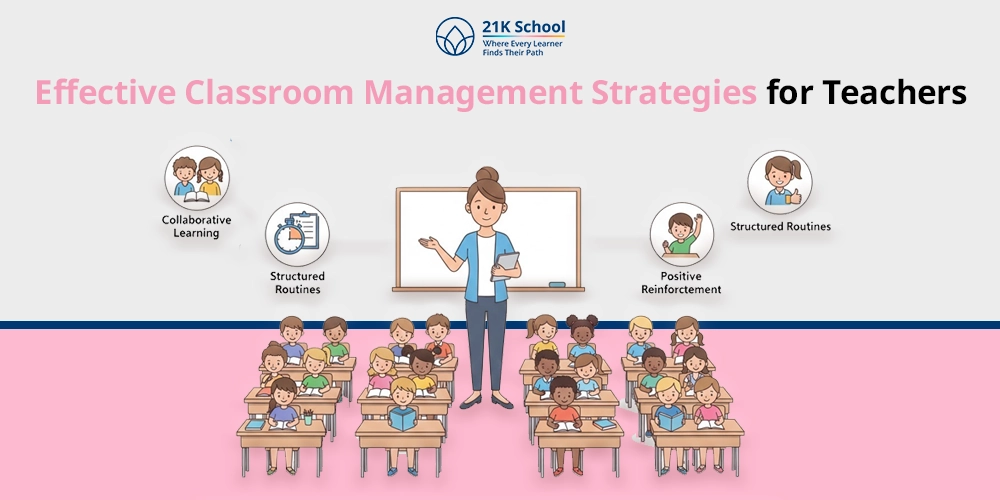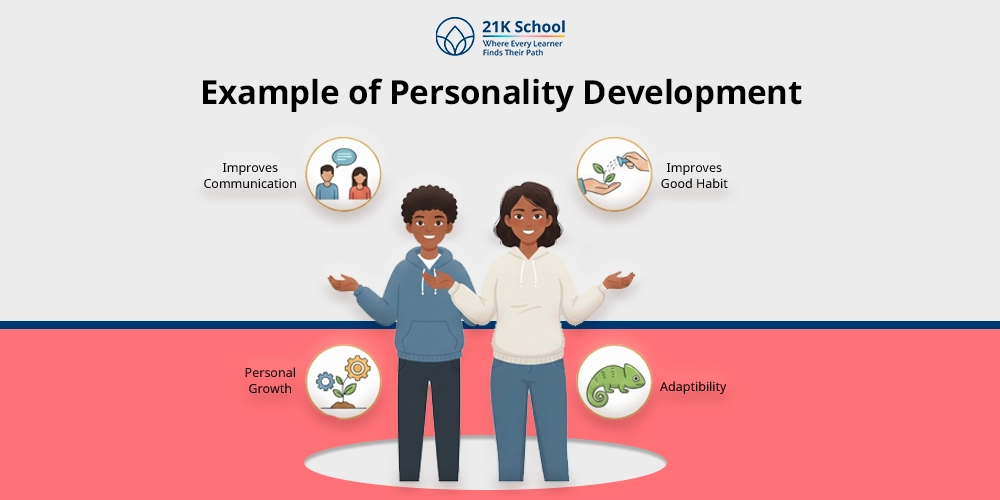
What is the reason interpersonal skills are required among students?
In the modern dynamic workplace, technical and academic qualifications will not suffice anymore. Interpersonal skills assist in communication, relationships, collaboration and problem-solving , both personally and professionally.
Career progression is achieved through emotional intelligence , empathy , teamwork and communication, among others. Interpersonal skills are needed by students as much as by adults and working people.
They encourage collaboration and resolve conflicts at the leadership level besides enhancing learning . With the emphasis on the improvement of interpersonal skills, the students will have an increased number of competencies and, thus, more career options.
Contents
- 1 What are Interpersonal Skills?
- 2 Top 14 Importance of Interpersonal Skills
- 2.1 1. Conflict Resolution
- 2.2 2. Teamwork
- 2.3 3. Empathy
- 2.4 4. Collaboration
- 2.5 5. Emotional Intelligence
- 2.6 6. Active Listening
- 2.7 7. Adaptability
- 2.8 8. Building Relationships
- 2.9 9. Improves Communication Skills
- 2.10 10. Building Trust
- 2.11 11. Helps in Boosting Confidence
- 2.12 12. Helps in Decreasing Stress
- 2.13 13. Inculcate leadership
- 2.14 14. Improve problem-solving abilities
- 3 Conclusion
What are Interpersonal Skills?
Interpersonal skills refer to the means of communicating with others. It can be oral communication, active listening, empathy or teamwork .
They are skills that are highly valuable in the working relationships and personal ones. Interpersonal skills are applicable to working adults and businesses as well as students in their day-to-day lives.
Interpersonal skills enable people to collaborate innovatively. They tend to be concerned with clear communication, collaboration in work, adaptation to change, flexibility, teamwork, leadership and accountability.
Top 14 Importance of Interpersonal Skills
Interpersonal skills involve our conduct during socialisation, personal and professional. These skills are needed in our globalised world to establish relationships and collaboration skills , and effectiveness in numerous fields.
The reasons for the importance of interpersonal skills are provided below in a more understandable manner.
1. Conflict Resolution
Conflict resolution is a necessary interpersonal skill. Students with good conflict resolution skills identify the reasons for disagreements, allow open dialogue and solutions that work for everyone.
This is a skill which assists with relationships in addition to problem-solving and it is thus an important aspect of interpersonal communication. For students it keeps friendships and growth from challenges instead of stressing students out.
2. Teamwork
Working together for a common goal using different strengths to get more than individual results is called teamwork. Developing such a skill also builds unity and purpose in a team environment.
Teamwork helps students share tasks, help classmates and celebrate group successes. In schools they also have lots of teams – sports and study groups – where they learn cooperation and collaboration.
3. Empathy
Empathy can be defined as knowing how other people feel and the manner in which they view people without being biased against them. The confirmation of these emotions and sympathy comes from how they are connected.
This translates to a more multicultural and amicable classroom for students. It enhances respect among the learners and minimises the chances of miscommunication through the assistance of inclusive education .
4. Collaboration
Collaborative learning is vital for interpersonal skills. The aspects of transparency with regard to exchanging ideas, the positive attitude towards constructive criticism of others, and the adaptability of one’s own attitude to a changing group situation are also quite crucial to the ability to develop collaboration skills
In one of the lessons, students are divided into groups, and they discuss their ideas, criticise each other and coordinate their contributions to the overall dynamics of the group. It enables respect and cooperation with each other, essential to develop good relations.
5. Emotional Intelligence
Emotional intelligence refers to the processing of feelings or emotions of oneself and others. Emotional intelligence refers to such interpersonal skills as self-regulation and awareness.
Emotional intelligence helps students to identify their personal experiences and feelings – anxiety before tests. It allows students to perform better during exams, peer conflict, and to treat teachers, and friends. It also demonstrates to people/students how to cope with exam stress as well as how to study.
6. Active Listening
Listening is not merely hearing, but also understanding. It is the capability of knowing what one is talking about. Examples of it include respect and attention that will assist in preventing miscommunication in the process of building rapport.
In the case of students, it makes them more conscious of the dialogue and school relationships. Listening to the opinions of other people brings about trust.
7. Adaptability
New technologies, new roles in a team or any unexpected events in life are easy to adapt to changes. Flexibility would assist in making the students adjust themselves, think positively and learn through experience.
In the dynamic education , they inculcate transformation among the students instead of resisting it. Flexibility will bring resilience and certainty among the students in order to confront unexpected situations, like unexpected quizzes.
8. Building Relationships
Interpersonal skills also make for good relationships. Active relationships are built on effort, experience and interest.
It creates networks of help, opportunities, advice, and emotional support. Positive relationships bring students guidance from mentors or teachers. That also teaches about peer learning and about teacher-student relationships .
9. Improves Communication Skills
Students do well when communication is done well. Good communication includes primary interpersonal skills, the right tone, and awareness of non-verbal cues, which in turn facilitate in-depth learning experiences
Eye contact communication skills reduce errors and make sense. Classroom talks or homework coordination are also done via communication.
10. Building Trust
Trust is a fundamental element of interpersonal relationships. It is a forum for vulnerability and open exchange, of working together and supporting each other. In academia as well as in the workplace, trust is very much at the core.
In schools, students develop dependability, which we see between teachers and peers’ trust, which in turn creates a strong school community and smooths out daily interactions. Moreover, trust is the base from which social skills grow and out of which we see faith in other’s actions and intentions.
11. Helps in Boosting Confidence
Interpersonal skills develop confidence as you use them in social settings, which in turn gives you feedback. We see that public speaking and networking skills, which are what we focus on in class, give students self-confidence and reduce social anxiety.
That helps students out with stress and anxiety issues and also with communication and collaboration skills. And that is very beneficial for their future academic and social lives.
12. Helps in Decreasing Stress
Interpersonal skills also reduce stress as students and people may talk to peers and solve work issues faster. Also, they allow you to set what is healthy between you and what is not, and thus prevent exams and study stress from growing.
Also, there are more peaceful topics to talk about and in general better health and happiness. Moreover, in that they bring out the positive in social interactions, interpersonal skills have a great peace-promoting quality, which in turn brings in more calm and support in the school environment.
13. Inculcate leadership
Interpersonal skills help inculcate leadership skills in students by teaching them tips on how to guide others with interaction, empathy and teamwork. This is useful in school clubs or classes as through this problems can be solved – they get a sense of responsibility and vision.
It goes beyond academics, it trains students for their future leadership in teams or communities – charismatic change agents who change things and achieve things easily as a group.
14. Improve problem-solving abilities
Interpersonal skills improve problem-solving skills , because students work together to brainstorm ideas and to look at things from multiple perspectives when they face tough assignments or peer disagreements.
It gives students tools for real-life problems, group dynamics, and personal problems, so they can be more innovative in their thinking and life.
Conclusion
Interpersonal skills are a prerequisite for students, which enhances holistic development among students, allowing them to face school problems, make friends, to prepare for future success.
Mastering interpersonal skills like conflict resolution, trust building, adaptability, active listening skills , etc, helps in enhancing learning efficiency. So, promoting their early development produces confident, empathetic leaders who can work in many different settings in life and work.



